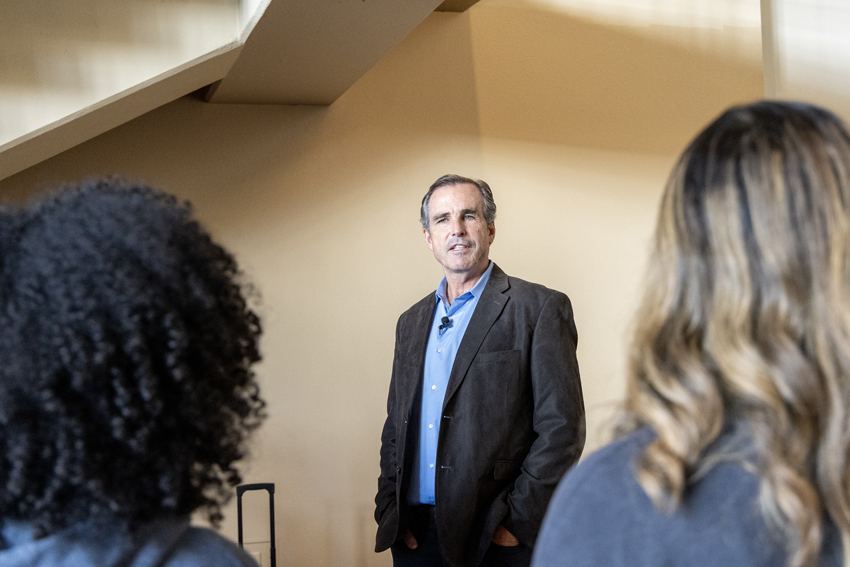Caffeine is a chemical stimulant that many Americans consume every day, typically to start off their morning. Caffeine is found in a variety of drinks, including sodas, energy drinks and coffee. For years, people have debated the effects of these drinks, some saying that caffeine causes harm to the body, with others arguing that caffeine is fine in moderation.
It is estimated that between 82 and 92 percent of Americans consume caffeine on a daily basis. Of this population, 50 percent drink around 2 cups a day, and 50 percent drink five cups a day or more.
Around 20 milligrams of caffeine can produce noticeable changes in the mind and body, and an average 6 oz. cup of coffee contains approximately 100 milligrams of caffeine. Energy drinks generally contain four times this amount.
Uses of caffeine
Many people drink coffee to get their daily buzz, but some prefer drinks such as soda or energy drinks. Junior Austin Rurik says he consumes soda on a daily basis.
“I drink at least 10 ounces of soda every day, because it tastes good and I’m addicted,” Rurik said. “I have tried to stop before, but I just couldn’t do it and eventually I came back to soda.”
Many people consume caffeine for other reasons, however. Some drink coffee or energy drinks each day due to a lack of sleep, yet others just drink coffee or soda for the taste and quick buzz.
“I have about one or two cups of coffee a day,” Sarah Ingersol, ’11, said. “It tastes good, and also it helps get me up in the morning.”
Caffeine is also used before exercise to increase heartbeat and the metabolism, thus making the workout easier as well as increasing muscle levels and improving breathing.
Caffeine in moderation is enjoyed by most Americans and recognized as OK by doctors, and even seen as good for the heart in moderation. However, overusing caffeine can entail many negative effects for the human body.
Healthy, harmful effects
The benefits of caffeine include feeling more awake and energetic, resulting in increased concentration levels due to the brain being stimulated. For overweight individuals, caffeine increases the metabolism, which can help the body excrete stored fat.
According to Kevin Wingert, M.D., a family practitioner at Community Medical Providers, caffeine can benefit consumers through better attention skills and reduced risks of certain diseases.
“[Caffeine] helps your attention,” Wingert said. “There actually is data out there that people who drink coffee have lower rates of diabetes and Parkinson’s disease.”
Some immediate side effects of caffeine include short-term memory throughout the day, mood swings, irritability, increased heartbeat and, in extreme cases, panic attacks. According to Wingert, heavy caffeine consumption can cause increased risk of high blood pressure.
“I had some people who had high blood pressure and were drinking two pots of coffee,” Wingert said. “I had them stop the coffee, and the high blood pressure went away. Everybody responds to it differently. Some people have no effect; [for] other people, it can raise their blood pressure and give them heart computations.”
Worse side effects of caffeine may actually occur when a frequent caffeine drinker stops “cold turkey,” or abruptly. In fact, a sudden cease in the consumption of caffeine can cause restlessness, irritability and severe headaches. However, some people react differently, and someone who typically drinks more caffeine on a day-to-day basis would have a tougher time quitting immediately.
Long-term, too much caffeine has been known to cause muscle soreness, mainly in the neck and back, along with waking up tired even after having had caffeine in the morning. Finally, two of the more common and well-known side effects of caffeine are sleep deprivation and insomnia.
Caffeine in moderation
While caffeine affects each individual differently, in general, about 200-300 milligrams (2-4 cups of coffee) of caffeine per day is a moderate amount for the average person. The line for too much caffeine typically begins at 500 to 600 milligrams (5-7 cups of coffee); people who consume this much caffeine often experience the formerly described symptoms.
Even though there have been numerous statistics and tests on caffeine, Wingert says there is no set limit due to the various effects it has on individuals.
“Everyone’s different,” Wingert said. “You’ve got one person who will have one cup of coffee and they’ll get wired and get heart computations, and then you have other people that can drink two pots of coffee and not have any problems.”
Stacy Belmont, parent of junior Cooper Belmont, says she drinks multiple cups of coffee a day and may fall into the second group of people whom Wingert mentioned.
“I usually have about 8 to 10 cups of coffee a day, and, actually, I sleep fine at night,” Belmont said. “I have not gone without coffee for 25 years, so I wouldn’t know what I would feel like [without caffeine].”
Overall, caffeine is a substance that has two sides, offering benefits when consumed in moderation and negative side effects when taken too frequently. In the end, however, every person reacts differently to the stimulant.
For more information on the effects of caffeine consumption, read the April 14, 2009 article, Energy drinks prompt nutrition debate.






